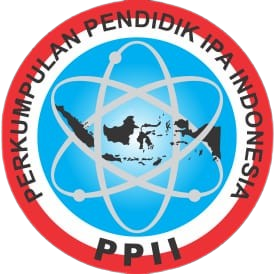English Kids’ Songs: Effective Media for Teaching Vocabulary
DOI:
https://doi.org/10.33752/discovery.v10i1.8767Keywords:
Effectiveness, English kids’ songs, Vocabulary masteryAbstract
This research aims to find out the effectiveness of using English kids' songs to teach vocabulary. It was conducted in a private elementary school located in Jombang area in the academic year of 2023-2024. The population of this research was the fourth-grade students, consisting of three classes with a total of 62 students. The sample, selected using purposive sampling, included 18 students of class IV B. This study used a pre-experimental design with pre-tests and post-tests to measure students' vocabulary improvement before and after learning using English kids' songs. The pre-test checked their initial vocabulary while the post-test measured their progress. The results were analyzed by descriptive statistics and a-paired sample t-test. The results showed that vocabulary before being treatment was still "fairly sufficient" with the mean score of 59,44. After being taught using English kids’ songs, the students’ vocabulary mean score increased from 59.44 to 88.89. The mean score, which was initially categorized as "fairly sufficient," has now risen to the "excellent" category, reflecting a notable enhancement in the student's vocabulary mastery. The paired sample t- test results showed a significance value of 0.000, which is less than 0.05, meaning the improvement was statistically significant. It means that English kids' songs as the media is effective for teaching vocabulary at an elementary school. This research provides strong evidence that innovative media such as English kids' songs can be a concrete solution to the challenges of vocabulary learning in school especially at an elementary level.
Downloads
References
Ananta, B., & Agustina, R. (2024). The Effestiveness Of Using Conversational Video Based Learning To Increase Vocabulary Mastery. Ed-Humanistics : Jurnal Ilmu Pendidikan, 09, 34–38. https://doi.org/https://doi.org/10.33752/ed-humanistics.v9i01.6107
Anisya, V., Supriyanto, A. S., & Ekowati, V. M. (2021). The Effect of Motivation on Employee Performance through Organizational Culture. Journal of Economics, Finance And Management Studies, 04(07), 1028–1033. https://doi.org/10.47191/jefms/v4-i7-16
Arimurti, S. (2024). Peningkatan keaktifan belajar menulis teks Deskriptif melalui model cooperative learning tipe snowball throwing bagi siswa MTs negeri 8 Kebumen. Discovery : Jurnal Ilmu Pengetahuan, 9(1), 17–30. https://doi.org/10.33752/discovery.v9i1.5811
Erita. (2017). Pengaruh Strategi Pembelajaran Kooperatif Tipe Numbered Head Together (Nht) Dan Minat Belajar Terhadap Hasil Belajar Akuntansi Siswa Kelas Xii Smk Nusatama Padang Erita. ECONOMICA Journal of Economic and Economic Education, 6(1), 72–86. http://dx.doi.org/10.22202/economica.2017.6.2.1941
Faturrokhman, R. (2024). Media Pembelajaran Interaktif Meningkatkan Keterlibatan Dan Pemahaman Siswa Di Sekolah Smk Pembangunan. Jip, 2(4), 713–721.
Fransischa, A., & Syafei, A. F. (2016). Using Song to Teach English to Young Learners. Journal of English Language Teaching, 5(1), 252–258. https://doi.org/https://doi.org/10.24036/jelt.v5i1.7310
Frimaulia, S. (2022). The effectiveness of kids song on students’ motivation in listening comprehension. The SEALL JOURNAL The STKIP Al Maksum English Education, Linguistics and Literature Journal, 3(1), pp. https://jurnal.stkipalmaksum.ac.id/index.php/jellas
Hatch, B. (1995). Vocabulary, semantics, and language education. Cambridge University Press, 40 West 20th Street, New York, NY 10011-4211.
Holidazia, R., & Rodliyah, R. S. (2020). Strategi Siswa dalam Pembelajaran Kosa Kata Bahasa Inggris. Jurnal Penelitian Pendidikan, 20(1), 111–120. https://doi.org/10.17509/jpp.v20i1.24562
Isnaini, A. (2021). Do you like listening to music? students’ thought on their vocabulary mastery using english songs. Journal of English Language Teaching and Learning, 2(2), 62–67. https://doi.org/https://doi.org/10.33365/jeltl.v2i2.901
Jamaludin, H., & Ma’rifatulloh, S. (2024). Mind mapping method : Its effectiveness for teaching vocabulary. Discovery: Jurnal Ilmu Pengetahuan, 09(October), 76–84. https://doi.org/10.33752/The
Kırkıc, K. A., Cetinkaya, F., & Khairuna, K. (2023). Benefits of Learning Media in the Learning and Teaching Process At University. Jurnal Eduscience, 10(2), 659–664. https://doi.org/10.36987/jes.v10i2.4780
Komalasari, N., & Zuhriyah, M. (2021). Using Quizizz Game To Improve Students Vocabulary Mastery In Grade VII C At Mts Ibnu Rosyad. Journal of Teaching English as Foreign Language,Literature,and Linguistics, 1(https://ejournal.unhasy.ac.id/index.php/TEFLIC/issue/view/198). https://doi.org/https://doi.org/10.33752/teflics.v1i2.2163
Laa, N., Winata, H., & Meilani, I. (2017). Pengaruh model pembelajaran kooperatif tipe student teams achievement division terhadap minat belajar siswa (The effect of cooperative learning-student teams achievement division type on students’ learning interest). Jurnal Pendidikan Manajemen Perkantoran, 2(2), 139–148. http://ejournal.upi.edu/index.php/jpmanper/article/view/00000
Mariam, D., Harmawati, H., & Sa’diah, T. L. (2024). Effect of Animated Video Media on Creative Thinking in Elementary School IPAS (Natural and Social Sciences) Learning. Journal of Education Method and Learning Strategy, 2(03), 1071–1085. https://doi.org/10.59653/jemls.v2i03.1128
Nasikhah, R., M Basir, U. P., & Fajarina, M. (2019). Improving Students’ Vocabulary Mastery Through Story Telling Strategy and Hand Puppet Media. Intensive Journal, 2(2), 106. https://doi.org/10.31602/intensive.v2i2.2461
prihatini, effiyanti. (2020). Pengaruh Metode Pembelajaran Dan Gaya Belajar Terhadap Hasil Belajar Ipa. Instruksional, 1(2), 152. https://doi.org/10.24853/instruksional.1.2.152-158
Purwanti, A. (2021). The effectiveness of kids song to improving vocabulary building of ohec’s students at Ohecs-Yapsedi Sinjai. Universitas Islam Ahmad Dahlan.
Regiani, G., Nuraeni, P., & Dewi, L. S. (2024). Applying English Songs To Children In Second Language Acquisition. 2(3), 81–91.
Safapour, E., Kermanshachi, S., & Taneja, P. (2019). A review of nontraditional teaching methods: Flipped classroom, gamification, case study, self-learning, and social media. Education Sciences, 9(4). https://doi.org/10.3390/educsci9040273
Shafara, I. Z., & Zuhriyah, M. (2024). Running dictation : an effective strategy for teaching vocabulary. Discovery: Jurnal Ilmu Pengetahuan, 09(October), 95–102. https://doi.org/10.33752/The
Tanjung, T. S. (2020). the effectiveness of kids song on students’ vocabulary mastery at V grade of Sdit Bunayya Padangsidimpuan. Thesis, 13, 1–168. http://etd.uinsyahada.ac.id/id/eprint/5901
Tomaszewski, W., Xiang, N., Huang, Y., Western, M., McCourt, B., & McCarthy, I. (2022). The Impact of Effective Teaching Practices on Academic Achievement When Mediated by Student Engagement: Evidence from Australian High Schools. Education Sciences, 12(5). https://doi.org/10.3390/educsci12050358
Tsaniyah, W. (2024). Implementasi Metode Bernyanyi Pada Pembelajaran Pendidikan Agama Islam di SDN 107412 Simadamada Deli Serdang. 11(2), 181–192.
Untari, E. (2017). Problematika Dan Pemanfaatan Media Pembelajaran Sekolah Dasar Di Kota Blitar. Problematika Dan Pemanfaatan Media Pembelajaran Sekolah Dasar Di Kota Blitar, 3(1), 259–270. https://jurnal.stkippersada.ac.id/jurnal/index.php/JPDP/article/view/41
Widhiprasetya, G. A., Mujiyanto, J., & Sutopo, D. (2021). The effectiveness of children youtube songs and flashcard games to teach vocabulary to kindergarten pupils. English Education Journal, 11(4), 528–538. https://doi.org/10.15294/eej.v11i1.48838
Zuhriyah, M., & Aziza, R. (2022). The Effectiveness of Using Rubber Ball Throwing Game to Teach Vocabulary. International Journal of English Education and Linguistics (IJoEEL), 4(2), 44–52. https://doi.org/10.33650/ijoeel.v4i2.4623
Downloads
Published
How to Cite
Issue
Section
License
Copyright (c) 2025 annisa rochma, mukminatus zuhriyah

This work is licensed under a Creative Commons Attribution-ShareAlike 4.0 International License.

















